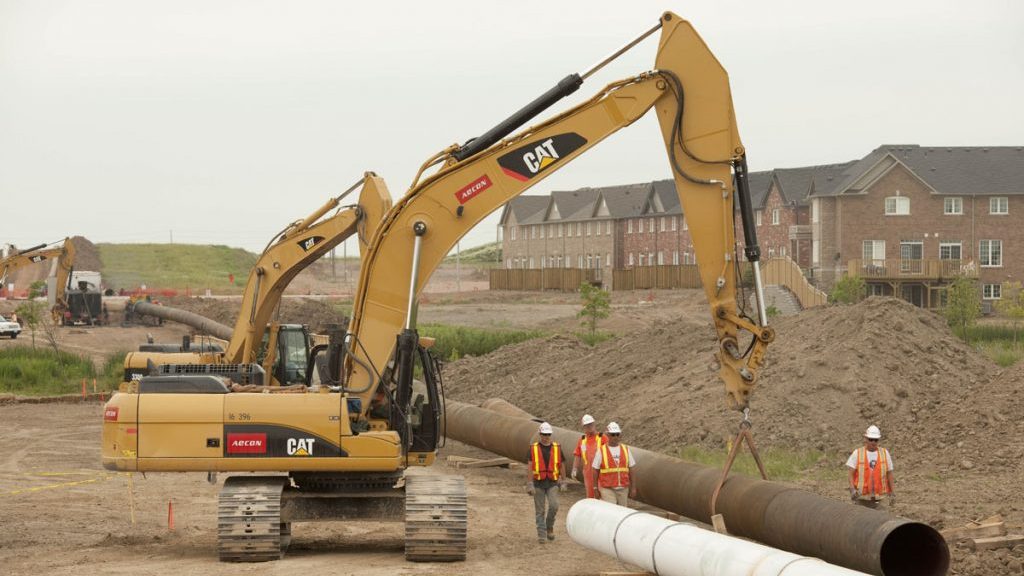��������ion stakeholders praised the federal government’s May 23 call to disallow a Chinese government-controlled firm’s proposed takeover of Canada’s Aecon in the first days after the announcement, while others, including the prime minister, further explained the national security rationale behind the decision.
The cabinet’s decision to reject the proposed purchase of the Canadian construction giant by CCCC International Holding Inc. (CCCI) was announced by Economic Development Minister Navdeep Bains. The minister cited a thorough national-security review in his statement.
Speaking to reporters the next day, Prime Minister Justin Trudeau elaborated on the reasoning.
“There are always going to be concerns about the ability of a country to continue to protect and deliver essential services to its citizens in a way that enhances and maintains their own sovereignty,” he stated during an event in La Malbaie, Que.
“We take seriously the work that our intelligence and security agencies do…and they made a very clear recommendation that proceeding with this transaction was not in the national-security interests of Canada.”
Aecon announced last October it was being acquired by CCCI, a subsidiary of China Communications ��������ion Ltd., which is a publicly traded company with 64 per cent Chinese government ownership. The federal government subsequently announced the review under a process laid out in the Investment Canada Act.
On May 24 the Canadian ��������ion Association (CCA) issued a statement saying it was “pleased” with the decision and quoted CCA president Mary Van Buren as saying, “We are happy the government recognizes the fact that government-owned or -controlled entities have no place to compete against private and publicly traded companies in the Canadian construction industry.”
Van Buren later commented the CCA preferred to focus on competition issues rather than national security as the federal government carried out its review.
The issue was state-owned enterprises and the nature of these state-owned enterprises
— Wesley Wark
University of Ottawa
“Our message to the government is, please continue to do what you can to ensure there is continued confidence for business and investment in Canada,” she said.
“All of our policies speak to free trade and free movement of goods and not having government- or state-controlled firms.
“We see this as an opportunity to work with the government and the public to explain just how valuable construction is to Canadian infrastructure and our future economy.”
Three Canadian firms — PCL ��������ors, Ledcor Industries and Graham Group — had joined forces to commission a survey that reported in March almost eight in 10 Canadians said the federal government should prohibit the sale of Canadian companies when the buyer is owned by a foreign government.
PCL spokesperson Shane Jones noted May 24 the CCA announcement “is totally aligned with our group’s thoughts.”
Through a spokesperson, Aecon’s president and CEO John Beck declined further comment beyond an original statement expressing disappointment with the decision and saying Aecon is “moving forward from a position of strength,” with a record backlog.
University of Ottawa national-security specialist Wesley Wark defended what he called a “bold” cabinet decision. He suggested the decision did not specifically target China — that in future similar national-security reasoning could be applied if, for example, a Saudi Arabia-controlled firm attempted to move into the Canadian market.
“The issue was state-owned enterprises and the nature of these state-owned enterprises,” said Wark. “The size and scale of them, the opacity of their ownership, their planning systems, the close ties to the Chinese government through Chinese Communist Party cells that are embedded for planning and liaison purposes in Chinese state-owned enterprises.”
Critical infrastructure is one of nine categories scrutinized in cases of potential foreign takeovers, Wark explained. He said it is loosely defined but in general it means significant systems, assets and services vital to running Canadian society and government capacity.
Besides evaluating the role of the Chinese government, a national-security test would have also looked at Aecon itself, a large firm that has been involved in significant critical infrastructure projects in the past and continues to be.
Aecon is involved in defence contracts across the country, he noted, adding even an Aecon project as simple as building junior officers quarters at CFB Halifax could be construed as sensitive.
“You would have workers on site with security clearnances engaged with military personnel, you would be designing infrastructure, you would know about the infrastructure,” he said. “It is not an intellectual property issue, it is just knowing the layout, who is going to be there and what the demographics of that group of people are and what are the capabilities of that site and what telecommunications does that site use and so on.”
The Chinese government is known to be spending hundreds of billions on its Belt and Road Asian infrastructure initiative, Wark pointed out, and it’s also eyeing the Arctic.
“Certainly, the Belt and Road Initiative is seen by the Canadian government as a principle indicator as to how China intends to engage with the world politically and economically, and just how expansionist and ambitious it is. Absolutely that would be part of the discussion,” he said.











Recent Comments
comments for this post are closed